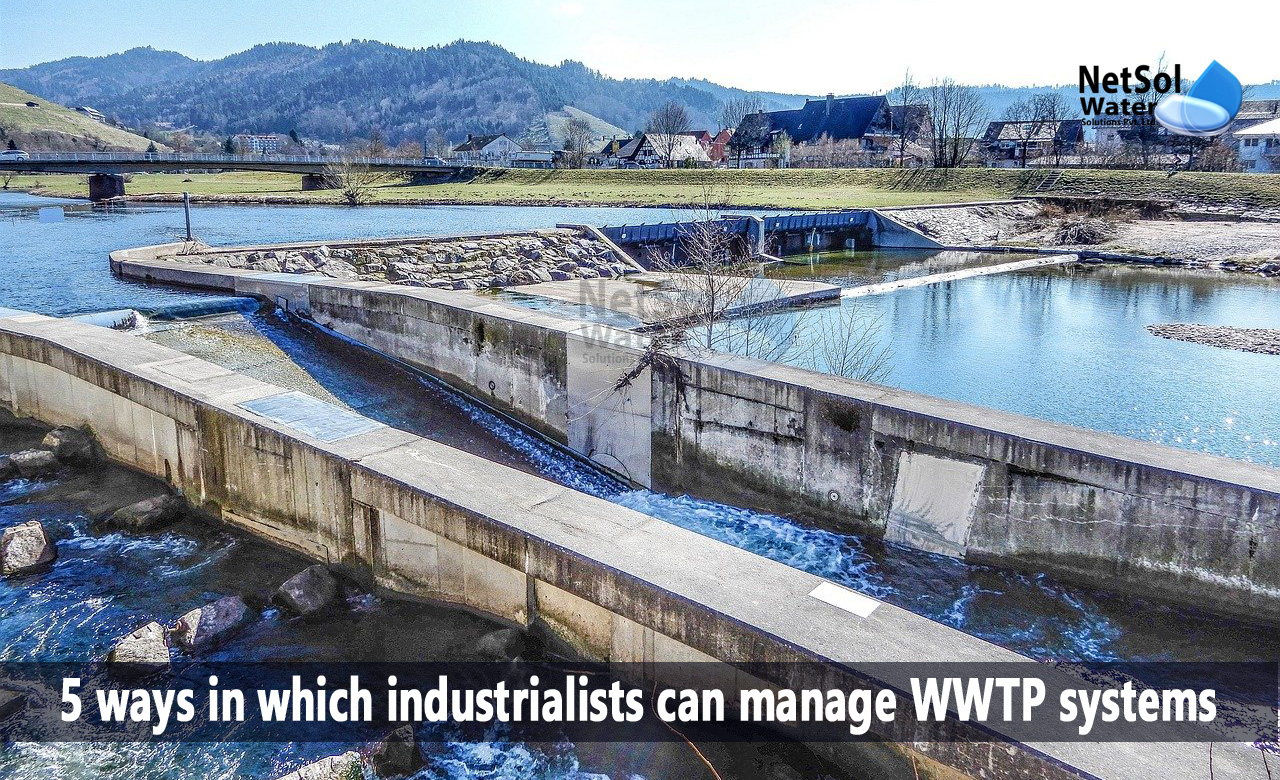Operation and maintenance (O&M) of wastewater treatment systems is a challenging procedure, which is essential to facilitate compliance and the efficient treatment of wastewater, before it is released into the environment. Industrial wastewater is distinct from household sources of wastewater, and is a result or product of industrial and commercial processes.
Runoff and leachate from locations that collect pollutants from industrial or commercial storage, handling, or processing facilities are included in this category of wastewater. If your business discharges industrial wastewater, you must make sure you treat it as necessary, before it leaves the facility or enters the sewage system.
There are numerous requirements for properly operating a wastewater management system, in line with federal, state, and local laws. We've written down the complicated world of managing wastewater and wastewater treatment systems into five areas below, which industrialists should pay close attention to in order to keep your system compliant and operating to its best capacity.
5 ways in which industrialists can manage WWTP systems
1. Regulatory obligations and Permits
Informing your local sewer and environmental authority of your plans to release industrial wastewater, is the first step toward compliance. Ask to speak with the coordinator of the industrial pretreatment program when you call.
You must produce and keep up-to-date an operations and maintenance (O&M) manual, which details your equipment and how it is intended to function for any wastewater treatment procedures you run, for instance, pH adjustment, ion exchange, flocculation/coagulation, or settling tanks.
2. Features of Entering Wastewater
Fortunately, the information you gather here will be useful in both the wastewater system design, and numerous permit application processes. You are aware of the procedures that create the waste streams that you generate. Verify the chemicals you store on-site and how you handle them, by reviewing your chemical hygiene/management strategy and other processes.
To make sure the plans are being followed, speak with other employees at your location and make changes if necessary. Those errors could pose serious issues if they are not fixed in the future.
3. Size and Source
You are in responsible of getting back into compliance if your facility has received, wastewater discharge violations related to volume, specific contaminants, or color. If you don't know the exact source of the target pollutants, you may want to prevent them from entering your wastewater stream in the first place.
To do this, you will need to conduct additional research and maybe perform sampling at several locations, across the waste drainage system. Instead of implementing wastewater treatment systems, collecting the offending waste in a carboy instead of flushing it down the toilet can result in significant cost savings.
4. Measurement of Flow
You must understand the balance between the amount of water that enters and leaves your plant, as a wastewater operator or compliance manager. If the input and output are not equal, you must start looking for inconsistencies.
There are various reasons why accurate flow measurement is crucial. The most important consideration, when determining the capacity of a wastewater treatment system, is arguably flow rate. You'll be engaged in an ongoing struggle to ensure that your wastewater is adequately treated, and any setback could lead to serious clean-up or compliance issues.
To determine treatment and, consequently, how much of the chemical additives to have on hand, flow measurement is required. Additionally, almost all discharge licenses will demand that you measure the flow of the effluent, from a strictly regulated standpoint.
5. Operator Responsibilities
Operators are in charge of controlling pumps, probes, filtration equipment, software and firmware upgrades for automated systems, standard housekeeping, testing alerts, and any other duties necessary to maintain a secure and well-organized facility.
Operators are also required to report any spills or unusual behaviour. Operators are required to start the necessary communication chain, which may also include the regulatory body, if there are any plans to alter operations, drastically modify or replace equipment, or change flow.
When in doubt, examine your permission needs and contact the regulatory body as a good notification practice. Your vendor can help with notification if you outsource wastewater system maintenance.
What can we offer?
Since, wastewater composition varies, specialized wastewater management is required. Every project is different, and our experts at Netsol Water will assist you in selecting the most effective technique, for managing your wastewater.
Netsol Water is Greater Noida-based leading water & wastewater treatment plant manufacturer. We are industry's most demanding company based on client review and work quality. We are known as best commercial RO plant manufacturers, industrial RO plant manufacturer, sewage treatment plant manufacturer, Water Softener Plant Manufacturers and effluent treatment plant manufacturers. Apart from this 24x7 customer support is our USP. Call on +91-9650608473, or write us at enquiry@netsolwater.com for any support, inquiry or product-purchase related query.



